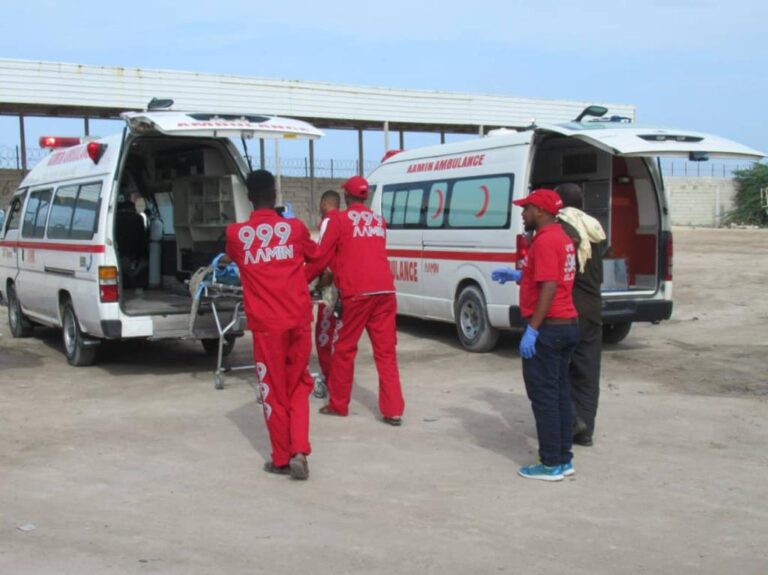By David Ngira
Somalia’s health sector is struggling. This is despite $4.5 billion in debt relief from the IMF and World Bank last year, which reduced the country’s debt-to-GDP ratio from 64 percent to 6 percent. The relief followed lengthy negotiations under the Heavily Indebted Poor Countries Initiative. The country’s investment in health has declined, even though the debt relief was based on economic reforms, including implementing a poverty reduction strategy, increasing tax revenues, prioritizing project spending, and improving public finances and debt management capacity. The analysis indicates that Somalia’s health budget has decreased significantly, from 8.5% of the budget in 2023 to 4.8% in 2024, despite the reduction in debt repayment from 1.4% of the budget in 2023 to 0.12% of the budget in 2024. Furthermore, the increase in the overall budget of about 10% has not been felt in the health sector. This calls into question the country’s commitment to the right to health.
Amnesty International’s 2021 report on Somalia’s response to COVID-19 indicated that the country allocated only 2% of the national budget to health in 2020, far short of the 15% that African governments committed to allocating to national health budgets in the Abuja Declaration. Three years later, Somalia’s health sector is still characterised by an inadequate health workforce, high infant and maternal mortality rates, inadequate and largely under-equipped health facilities, low levels of immunisation and recurring outbreaks of water-borne diseases. All of these undermine people’s right to adequate health. While some progress has been made, as reflected in the 2022-2026 strategic plan, the level of health care delivery still falls short of expected human rights standards. This has compounded the suffering of people already struggling to adapt to the consequences of the climate crisis on their livelihoods, including its impact on health, housing and food systems.
The Somali health sector is still characterized by insufficient health workforce, high levels of infant and maternal mortality, inadequate and largely under-equipped health facilities, low levels of immunization and recurrent outbreaks of waterborne diseases.
David Ngira, ESCR researcher at Amnesty International
Somalia’s 2021, 2022, and 2023 budgets show a significant gap between budget and health expenditure. For example, 2022 expenditure indicates that only 1.3% of the overall budget was actually spent on health, compared to an overall budget allocation of 10.6%. Similarly, in 2023, Somalia allocated 8.5% of the overall budget to the health sector, but spent only 7% of the overall budget on the same sector.
According to Transparency International, corruption has had a significant impact on Somalia’s health sector, potentially leading to an unexplained gap between the budget and health expenditures. Authorities should investigate the issue to determine the extent to which the gap is due to mismanagement, if any, of the health budget and prosecute those responsible. Somalia’s development partners should work with the government to strengthen accounting systems and encourage greater fiscal transparency and public participation in budgeting. Spending on employee salaries, which accounts for the bulk of the health budget, should be closely scrutinized to ensure that money is actually going to health workers.
Somalia must also work to increase its revenues by increasing trade, increasing tax progressivity, broadening the tax base and providing subsidies. It must also close all loopholes for illicit financial flows. This will increase the resources available for the health sector. It is therefore urgent that the international community expedite the development of a tax treaty to help countries like Somalia combat illicit outflows.
Somalia must also work to increase its revenues by increasing trade, implementing progressive taxes, broadening the tax base and providing subsidies. It must also close all loopholes for illicit financial flows.
David Ngira
Somalia certainly faces significant security and governance challenges. But military spending, which currently accounts for 24% of the budget, must not prevent the country from aligning its health policies and needs with appropriate budgetary allocations. This will enable it to meet its constitutional and international obligations to ensure accessible, affordable and quality health care for its population.
Two years into its presidency, Hassan Sheikh’s government must now translate its political commitments into tangible health improvements for Somalis. To do this, the government must allocate at least 15 percent of its budget to health, implement budgets prudently, and ensure that corruption does not undermine the country’s progress on health reforms and delivery.
Dr David Ngira is a researcher on economic, social and cultural rights at Amnesty International’s East and Southern Africa regional office.


